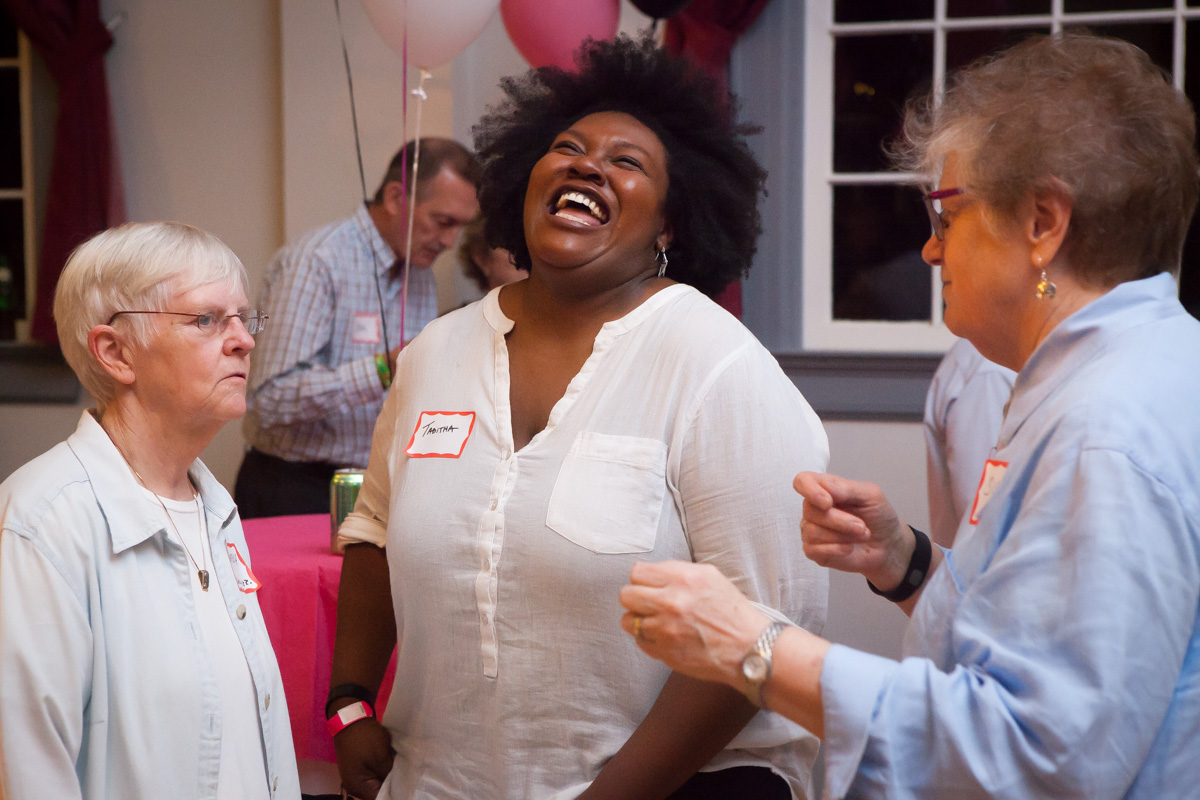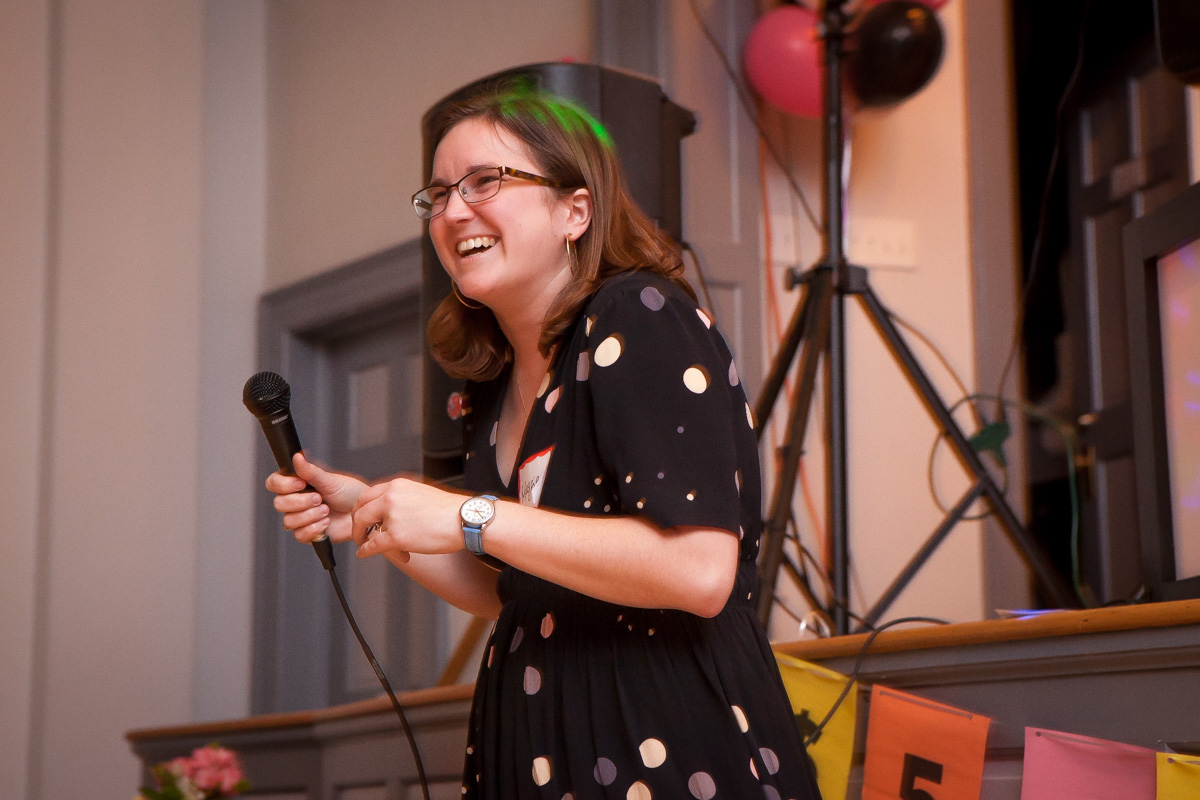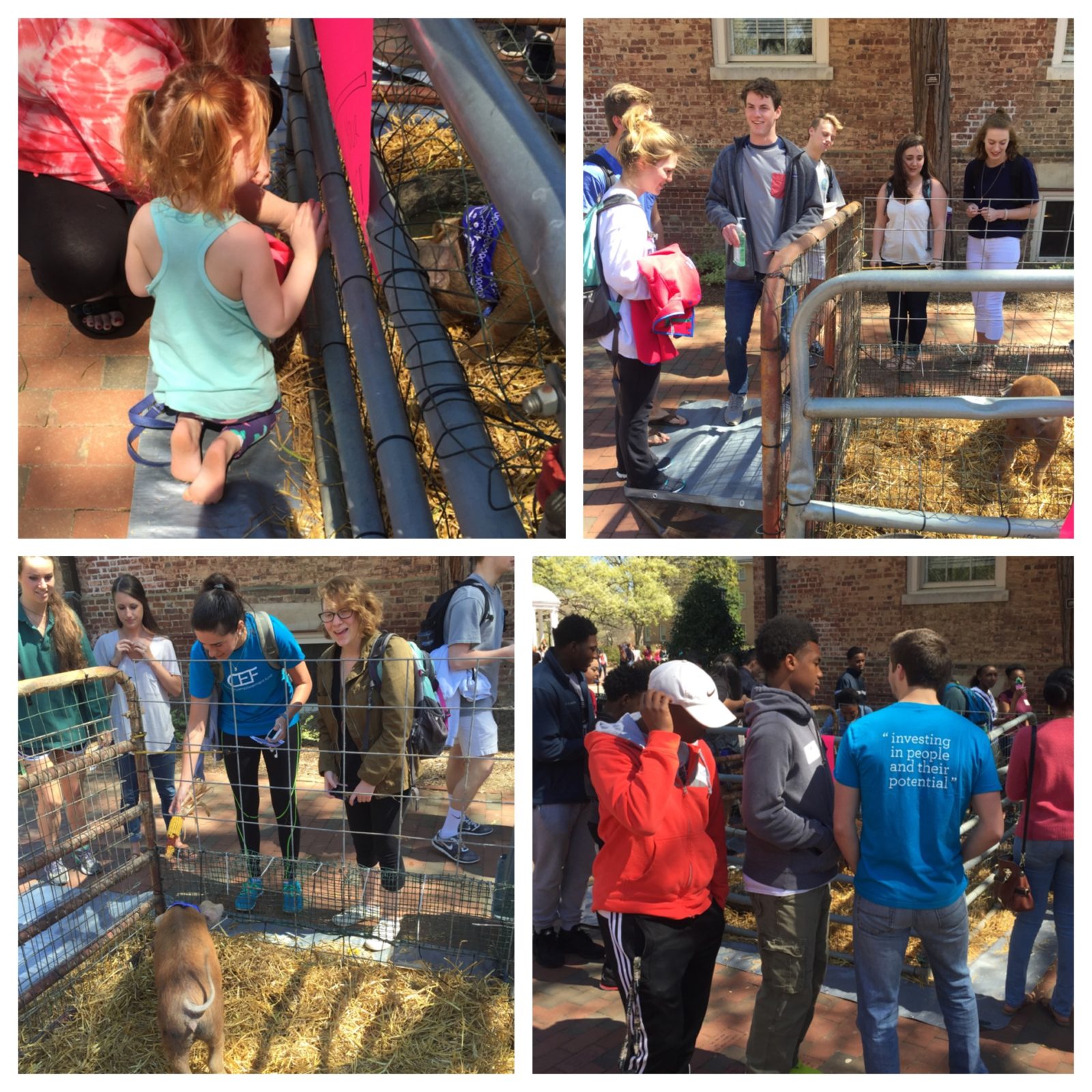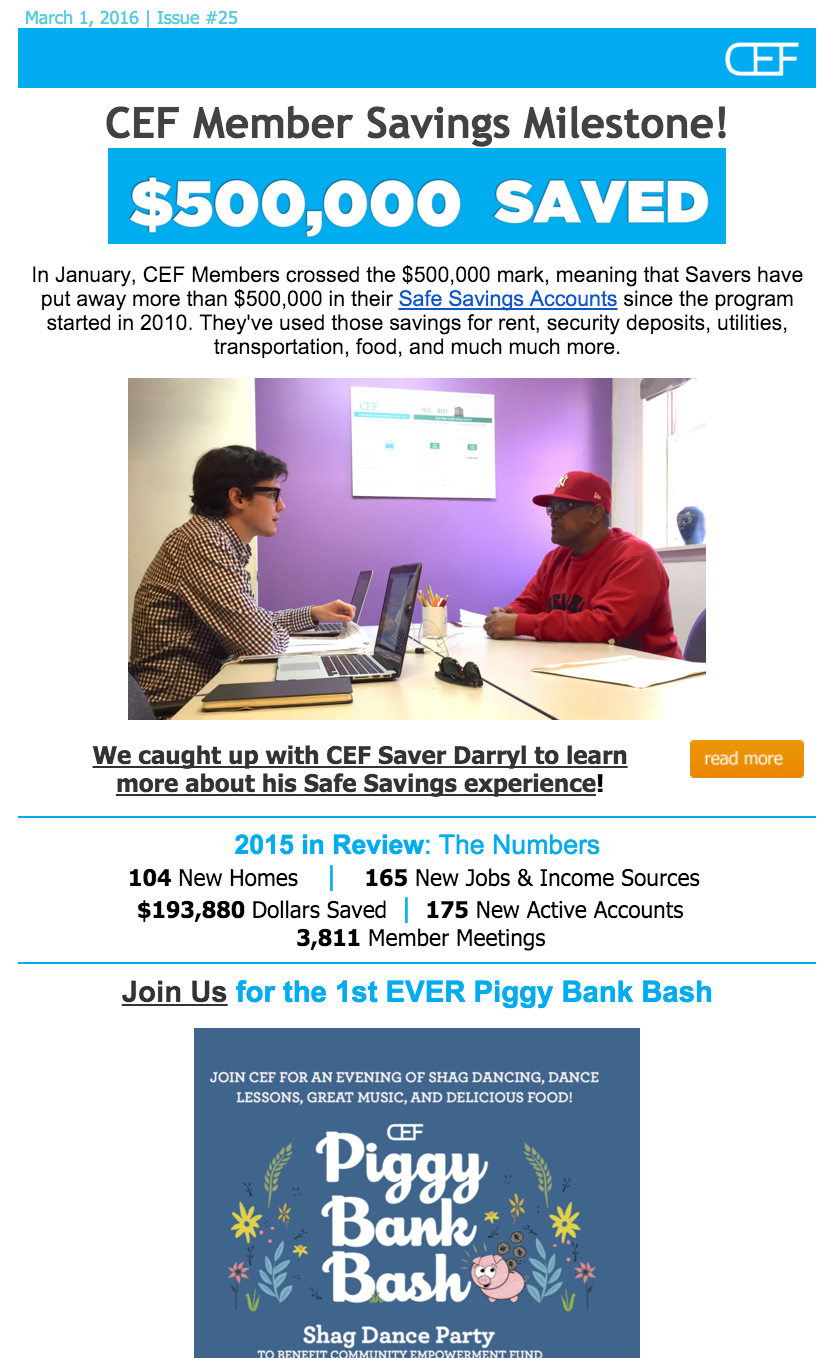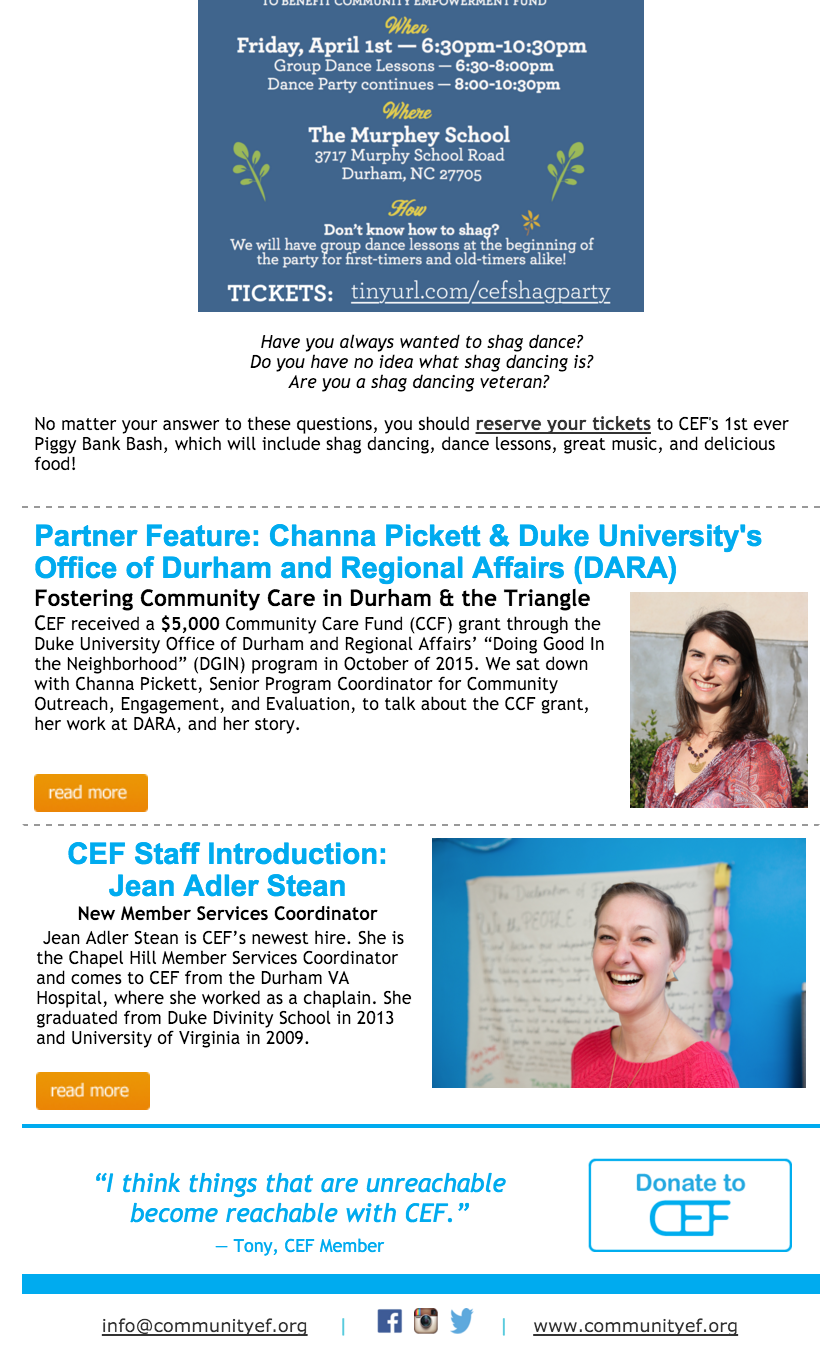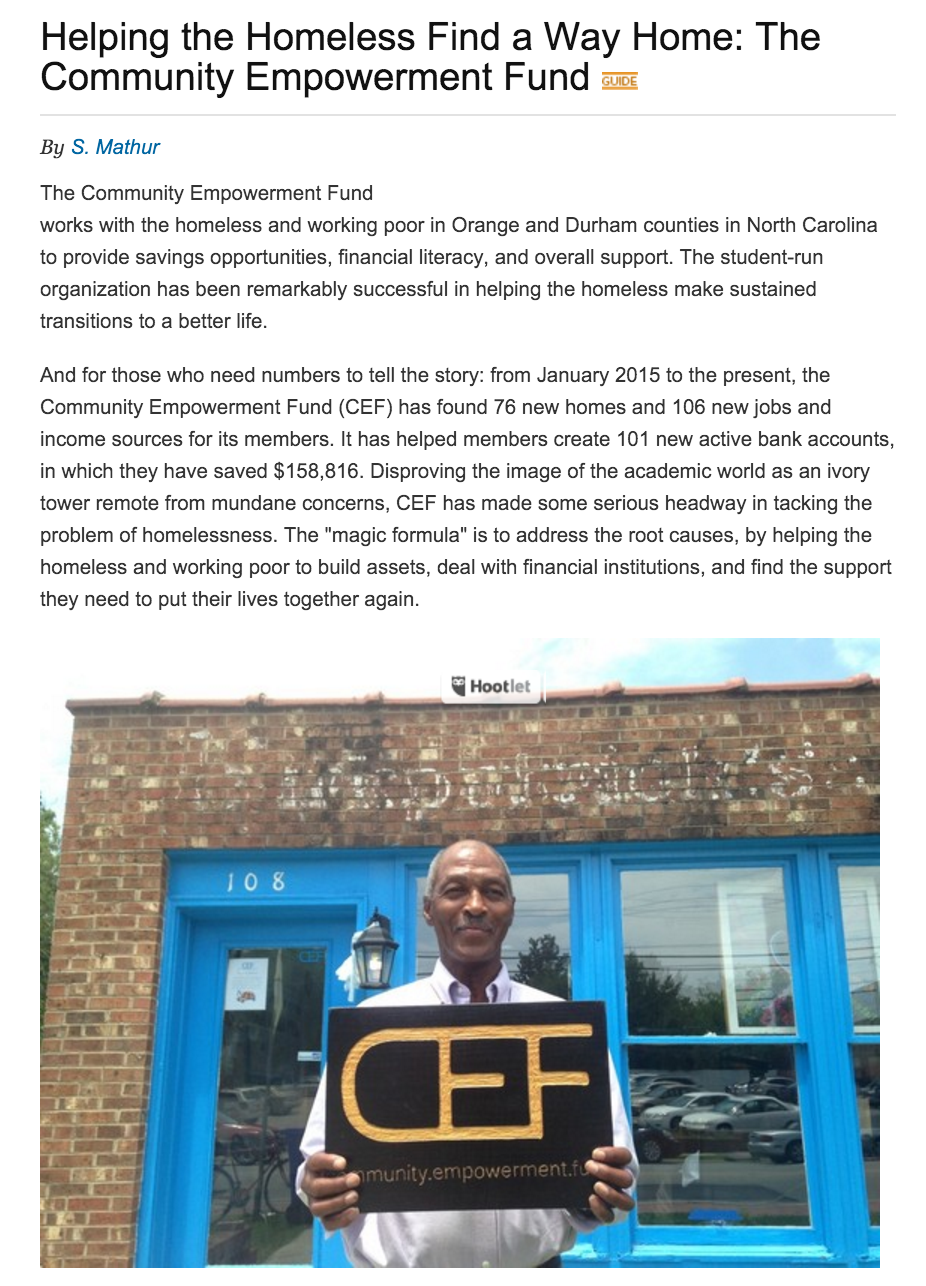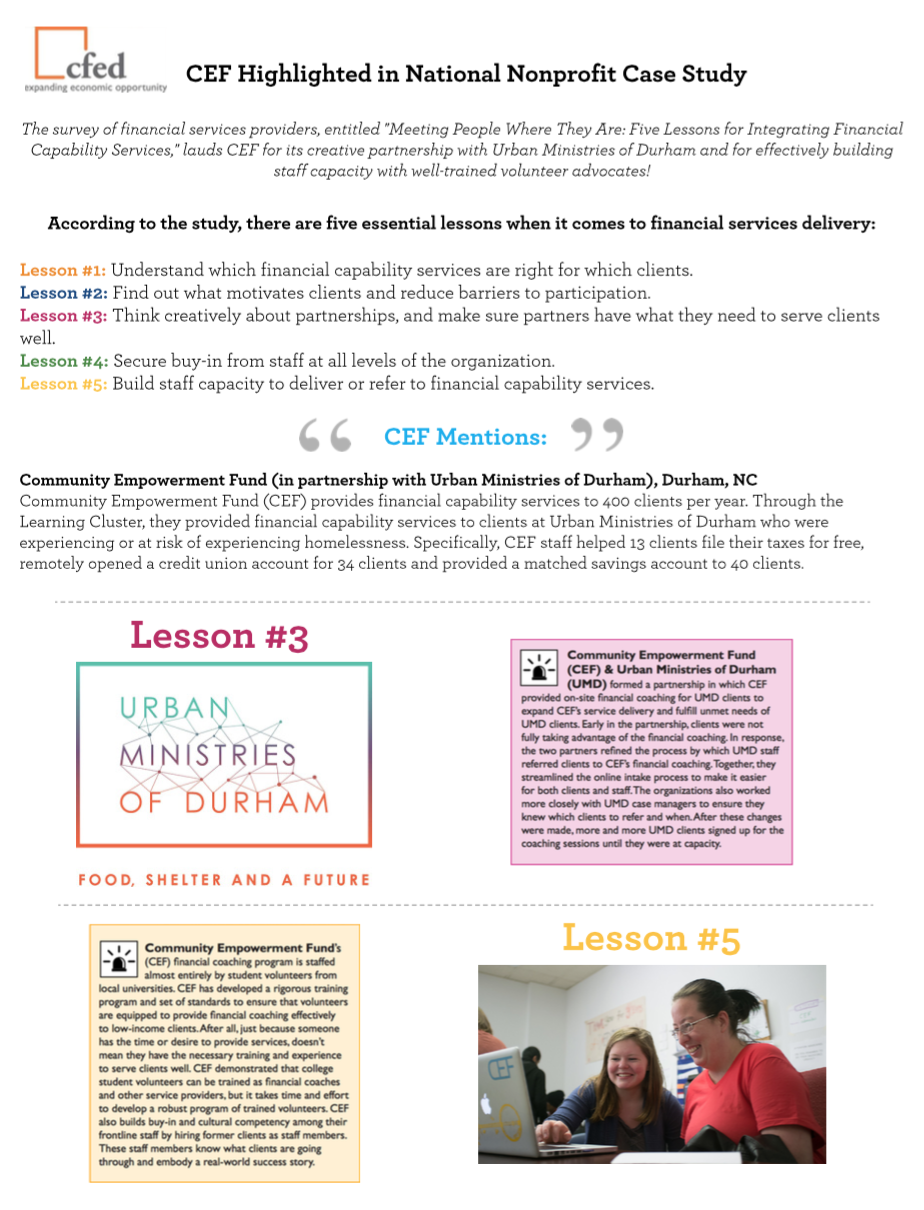
Jean Adler Stean is CEF’s newest hire. She is the Chapel Hill Member Services Coordinator and comes to CEF from the Durham VA Hospital, where she worked as a chaplain. She graduated from Duke Divinity School in 2013 and the University of Virginia in 2009.
She was kind enough to sit down for an interview on her first few months of work with CEF.
Tell me about your background
I grew up in Virginia Beach, but was born in New York and lived a whole bunch of different places. Virginia Beach is home though. I love the beach, and I love the ocean — it’s my soul place.
I’m married to John Stean, who works for the North Carolina NAACP.
How did you end up in divinity school?
I felt a calling to ministry and then worked during and after college for a community development nonprofit. The organization was called “Abundant Life Ministries” in Charlottesville, Virginia, and the idea was that you lived in and served in the neighborhood. It was less about programming and more about cultivating the resources that are already abundant in communities, and that community members really have the knowledge and power to help their community thrive.
Through that experience and through the experiences of college I was very interested in justice and community development and how that could work as a ministry. I realized that I didn’t know much of anything about ministry, so I should probably learn more about it.
So it was a combination of experience and wanting to learn more and keep doing that work.
What did you do after divinity school?
For two years, I worked at the VA Hospital in Durham as a Chaplain. The first year was my general residency, and then they had a new position open up for a mental health chaplain, working with folks who suffer from severe mental illness. I’ve always been very interested in mental health and found myself really drawn to it in chaplaincy work. It was pretty intense, but I think it’s another one of those callings. I think there are some people who just love to work in mental health, and I guess I’m one of those people.
It was challenging for a lot of the same reasons our work is challenging. You get people cycling in and out, who can’t really ever get well or heal, people who are struggling day in and day out, who have countless other circumstances on top of everything that trigger their mental health. I heard and saw the effects of oppression and poverty on health — mentally, physically and spiritually.
Why were you interested in working at CEF?
I was interested in CEF as an organization because of a lot of what I’d heard and knew from Janet (Durham Program Coordinator). It seemed like CEF was an organization that really cares about looking holistically at why people are in poverty. So, for example, we look at systemic injustices and systemic reasons for how people find themselves in the situations that they do, and we work to support both individuals in the moment and also work towards systemic change.
Why were you interested in being the Member Services Coordinator, in particular?
As you can probably tell from past experience, I like direct interaction with people. I love people, I love getting to know them, hearing their stories, and hearing about who they are. For the past two and a half years, I’ve been learning how to listen well to people. I was excited about the opportunity to keep that focus on working with individuals and supporting their unique needs and goals while also working to build partnerships and relationships to help the community as a whole. That’s what most intrigued me with the Integrated Services Center model. I was very much interested in how we can work to build connections and relationships across people and groups and institutions, in a way that can alter the landscape of our community for the better. It’s kind of like community development in a very specific kind of way.
Now that you’ve been on the job for a few months, how has it been different than you expected it would be?
Well, I found out very quickly that I have a whole lot to learn! The amount of information and resources y’all have collected in the database is incredible, and it’s a lot to know. I’m also discovering that resources and people and other organizations are constantly changing — that our community is constantly changing. So there’s always new information and people to learn about. It’s exciting in many ways, even if it can be quite confusing!
What I really appreciate about CEF is that we do talk about systemic issues, both within our community and within our organization. We’re self-reflective, and always willing to grow, even if it’s painful and tough. It’s not like CEF is saying, “we’ve got it all figured out, we know how to not oppress people with systems,” that’s near impossible. CEF is continually asking the questions and working to figure out how to better our services and improve ourselves as an organization.
What do you think is the biggest challenge this work will present to you?
I think sustainability. If I’m honest, some days can be very exhausting when you’re continually running up against systems and powers that you’re pretty powerless against when you’re working with Members. And you run into those a lot. Being in it for the long haul or sustaining oneself through that kind of work is tough, but doable.
What project are you most excited about in the new year?
I’m excited about continuing to get to know Members. I’d love to, in a general sense, really get more Members involved in more inner workings at CEF. They are so much the heart and soul of CEF, and I’d love for them to be involved in our community and continue to teach and shape us.
On a very specific point, I’m really hoping to get us some more robust legal resources. I think there’s been a gap here that was made apparent early on to me by some of our Advocates. So I’ve been following the connections as they come, and it seems like there are people in our community who are super excited about it as well. The resources are there, and we just have to tap into them. I’m tapping!
Tell me about a memorable Member meeting
In general, I think it’s just fun to get to know Members and to be able to call them by name, hear about their weekends, and know a little bit more about who they are and what they’re doing in the world.
One of my more memorable Member meetings was actually during a situation where I felt pretty powerless to offer tangible support. I met with a couple when they first came to Chapel Hill and they were homeless and didn’t have anywhere to stay that night. At that moment, I didn’t have many resources to offer them, which obviously is difficult, frustrating, and sad. But, I got to learn more about them in that hour and hear their story about how they got married and more about their family. I got to meet with them again recently, and it had been a while and they remembered me and I remembered them, and we were just kind of catching up about their holidays and getting to share about all the things that humans want connections with.
So, even though there are these monstrous barriers that can limit us in giving support to Members, sometimes I just have to say, “Whatever, barriers! We’re going to be human today.” That feels important to me. A lot of our hard work doesn’t always have the results that we want, but at the end of the day we can connect to someone meaningfully and that’s important to me.
Why do you think connecting with people is so important to you?
I really, truly love people. I think what all of us most want is to feel connected with and to feel loved by others. And in my work, I see how powerful it can be to have connections for myself and for other people — that a lot of healing takes place in that connection. And I’m really about healing, that’s what I want to be about in the world — for myself and for others. We could all use a lot of healing and I want to be a person who offers that, and I think connection is the way that I can offer that.


